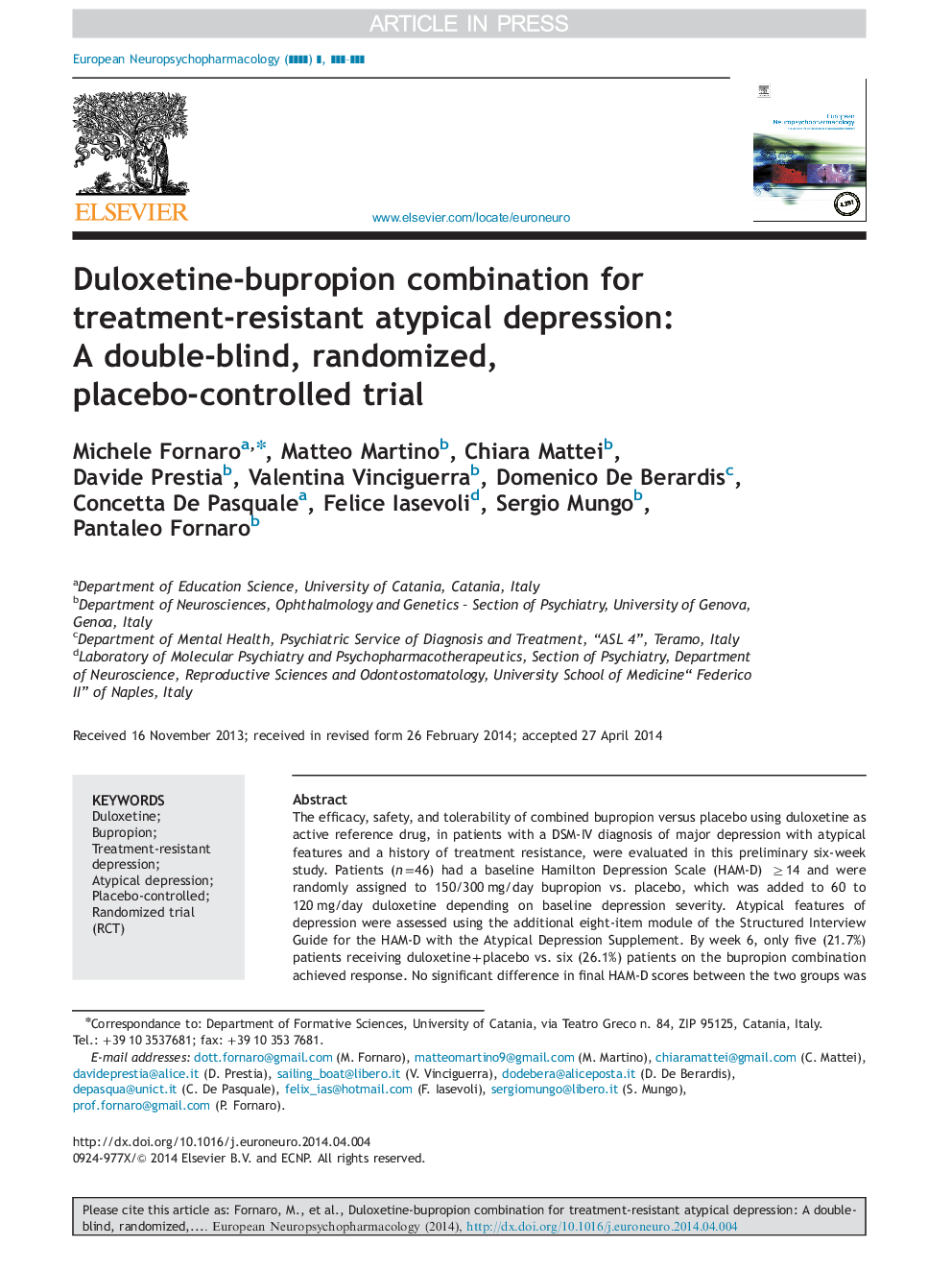| Article ID | Journal | Published Year | Pages | File Type |
|---|---|---|---|---|
| 10299202 | European Neuropsychopharmacology | 2014 | 10 Pages |
Abstract
The efficacy, safety, and tolerability of combined bupropion versus placebo using duloxetine as active reference drug, in patients with a DSM-IV diagnosis of major depression with atypical features and a history of treatment resistance, were evaluated in this preliminary six-week study. Patients (n=46) had a baseline Hamilton Depression Scale (HAM-D) â¥14 and were randomly assigned to 150/300 mg/day bupropion vs. placebo, which was added to 60 to 120 mg/day duloxetine depending on baseline depression severity. Atypical features of depression were assessed using the additional eight-item module of the Structured Interview Guide for the HAM-D with the Atypical Depression Supplement. By week 6, only five (21.7%) patients receiving duloxetine+placebo vs. six (26.1%) patients on the bupropion combination achieved response. No significant difference in final HAM-D scores between the two groups was observed between those patients achieving response. The presence of a higher number of atypical features significantly predicted non-response, with the relevant binary logistic regression model correctly classifying 17 out 22 (77.3%) of non-responders [Exp(B)=0.294; p=0.016] vs. 17 out 23 (73.9%) [Exp(B)=0.353; p=0.028] non-responder cases in the “+placebo” and “+bupropion” groups, respectively. In those patients receiving bupropion, treatment-emergent adverse events leading to withdrawal were more common among those receiving lower doses of the combination drug, and no life-threating dangers were noted. Additional studies, including an adequate course of duloxetine trial, are nonetheless aimed to allow a firm conclusion about the usefulness of the combination of duloxetine and bupropion for treatment-resistant cases of major depression with atypical features.
Related Topics
Life Sciences
Neuroscience
Biological Psychiatry
Authors
Michele Fornaro, Matteo Martino, Chiara Mattei, Davide Prestia, Valentina Vinciguerra, Domenico De Berardis, Concetta De Pasquale, Felice Iasevoli, Sergio Mungo, Pantaleo Fornaro,
